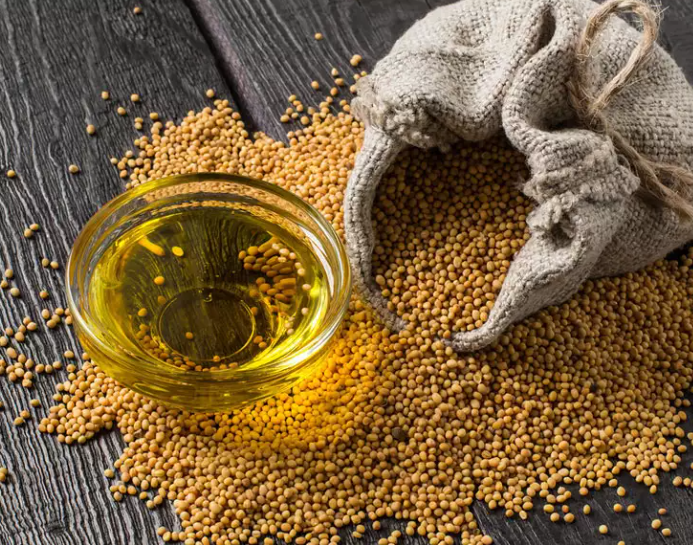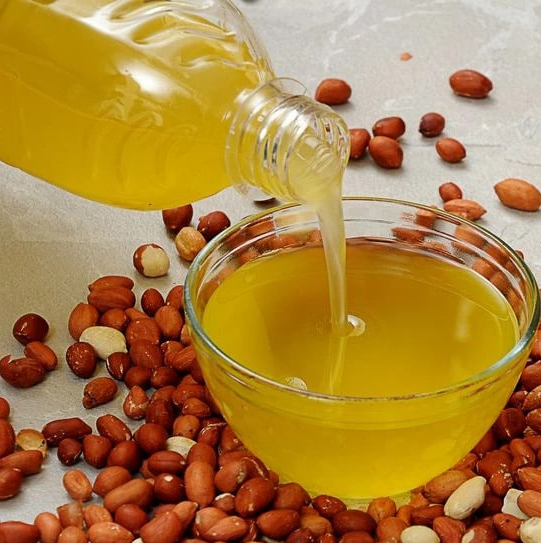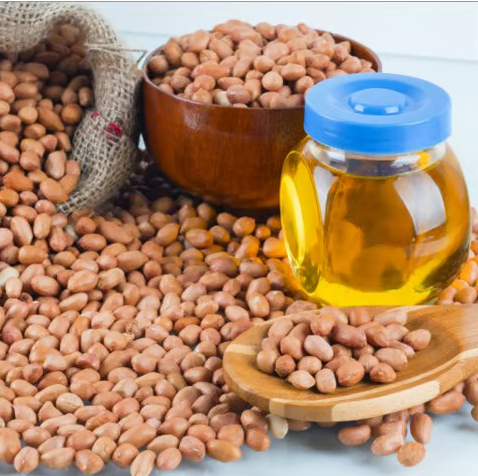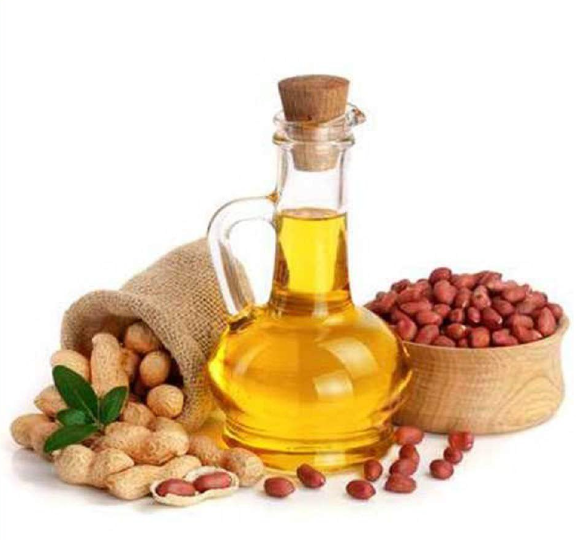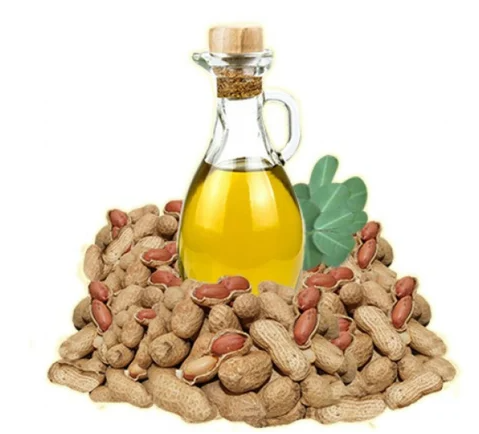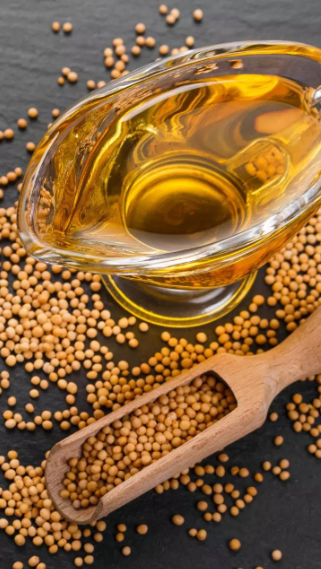Edible Oils
uses, benefits, and nutritional value of Mustard oil:
- Uses:
- Culinary: Mustard oil, also known as “Sarson ka tel,” is commonly used in Indian cooking. It provides a pungent flavor, unique texture, and a reddish-brown color to dishes.
- Traditional Remedies: Mustard oil has been used in traditional medicine for various purposes, including skin and hair care.
- Health Benefits:
- Heart-Healthy Fats: Mustard oil contains a balanced combination of polyunsaturated and monounsaturated fats. Consuming this oil can help improve heart health.
- Omega-3 and Omega-6 Fatty Acids: Mustard oil is a good source of these essential fatty acids, which have several health benefits:
- Reducing Inflammation: Omega-3s help reduce blood clotting, inflammation, and may lower blood pressure.
- Heart Health: Monounsaturated fats in mustard oil can lower LDL (bad) cholesterol and reduce the risk of cardiovascular events.
- Anti-Inflammatory Properties: Monounsaturated fats promote an anti-inflammatory state, reducing the risk of diseases like heart disease and diabetes.
- Nutritional Value(per 1 tablespoon):
- Calories: 124
- Fat: 14g (mainly monounsaturated)
- Sodium: 0mg
- Carbohydrates: 0g
- Protein: 0g
- Skin and Hair Benefits:
- Antioxidants: Mustard oil is rich in antioxidants and can be applied topically for skin conditions like acne, eczema, psoriasis, and sunburns.
- Traditional Dishes: Mustard oil is an ingredient in many Indian dishes, such as dal makhniand lachha paratha.
- Pickles: It’s also used for making pickles.
Remember that while mustard oil has health benefits, moderation is key due to its high calorie content. Always consult with a healthcare professional before making significant dietary changes.
Groundnut oil, also known as peanut oil or arachis oil, is a versatile vegetable-derived oil made from the edible seeds of the peanut plant. Let’s explore its nutritional value, properties, and potential health benefits:
- Nutritional Value(per 1 tablespoon):
- Calories: 119
- Fat: 14 grams
- Saturated fat: 2.3 grams
- Monounsaturated fat: 6.2 grams
- Polyunsaturated fat: 4.3 grams
- Vitamin E: 11% of the Recommended Daily Intake (RDI)
- Phytosterols: 27.9 mg
- Properties of Groundnut Oil:
- Antioxidant: Groundnut oil may act as an antioxidant.
- Anti-Inflammatory: It might have anti-inflammatory activity.
- Anticancer: Some studies suggest a reduced risk of certain cancers, including breast and colon cancer.
- Antidiabetic: Groundnut oil may have benefits for managing diabetes.
- Heart Protection: It might protect the heart.
- Antimicrobial: Groundnut oil could have antimicrobial properties.
- Uses:
- Cooking: Groundnut oil is commonly used for frying due to its high smoke point (437°F/225°C).
- Flavorant: Unrefined peanut oil adds flavor to dishes similar to sesame oil.
- Biodiesel: Historically, it was even used as a source of fuel for diesel engines.
Sesame oil, derived from raw or toasted sesame seeds, is a versatile oil used in Chinese, Japanese, and Middle Eastern cuisines. Let’s explore its nutritional value, benefits, and uses:
- Nutritional Value(per 1 tablespoon):
- Calories: 120
- Fat: 14 grams (mainly monounsaturated and polyunsaturated fats)
- Omega-3 and Omega-6 Fatty Acids: These essential fatty acids support heart health and immune function.
- Vitamin E: Provides antioxidant benefits.
- Health Benefits:
- Heart Health: Sesame oil’s balanced ratio of omega-3, omega-6, and omega-9 fatty acids may lower the risk of heart disease. It can help reduce LDL cholesterol and triglycerides.
- Anti-Inflammatory Properties: Sesame oil combats inflammation.
- Skin Protection: It may protect the skin from sun damage.
- Toasted Sesame Oil:
- Amber in color and nutty in flavor.
- Not ideal for cooking due to its low smoke point.
- Add it as a final step in recipes to enhance flavor.
uses, benefits, and nutritional value of Coconut oil:
- Nutritional Value(per 1 teaspoon):
- Calories: 40
- Fat: 4.5g (mainly saturated fat)
- Sodium: 0mg
- Carbohydrates: 0g
- Protein: 0g
Coconut oil is a plant-based fat derived from coconut meat. It’s solid at room temperature due to its high saturated fat content. Despite its popularity, recent research suggests that, like any other saturated fat, coconut oil should be consumed in moderation.
- Health Benefits:
- Hair Health: Coconut oil reduces protein loss in hair and may help with dandruff.
- Skin Benefits: Lauric acid in coconut oil has antimicrobial properties and may benefit the skin.
- Quick Energy: The medium-chain triglycerides (MCTs) in coconut oil provide rapid energy.
- Oral Health: Oil pulling with coconut oil can reduce bacteria and inflammation in the mouth.
- Brain Function: MCTs can be an alternative energy source for the brain.
- Uses:
- Cooking: Coconut oil is excellent for high-heat cooking due to its high smoke point.
- Skin Care: It moisturizes and may improve skin conditions.
- Hair Care: Apply it to your scalp for healthy hair.
Oral Hygiene: Try oil pulling for oral health benefits
